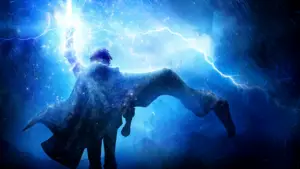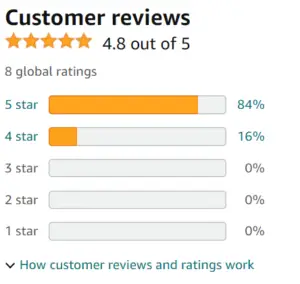I wouldn’t contend that my books are art, but writing is an artistic endeavor. It requires you to open your heart, plumb your emotional depths, and invite criticism of something you love. Offering your story to the world is to invite someone to stomp your heart. I know a few writers who appear unfazed by negative reviews. I’m not one of them.
Even though the reviews of my books have been overwhelmingly positive, I can always zoom in on the one negative (or simply neutral) comment in an otherwise glowing review. I’ll ruminate on it for days, too. I still plot literary revenge on a reviewer of Spirit Sight on YouTube. It’s been months, but it was obvious the reviewer hadn’t read the book carefully. If you slam a book you haven’t actually read, you’re a troll, not a reviewer.
It’s embarrassing how good that felt.
I blame my family. Anxiety, crippling self doubt, depression, painful introversion. These are my family legacy. My partner says I have big emotions. I think this means I have an emotional fragility and porosity that often leaves me defenseless against life’s ups and downs.
Fortunately, I write epic fantasy. Overcoming things like anxiety, depression, and self-doubt are what make a fantasy character a hero. Otherwise, what’s the point of the story? Imagine Frodo and Sam traveling to Mount Doom, singing songs and joking. I have a wealth of useful experience to draw on to depict my characters’ tortured lives. Passages like this in Spirit Sight Vol. 1, where Harold Wolfe is ruminating about his lover’s betrayal, is really a diary entry rather than fiction.
Each day he would wake, and there would be a moment before he remembered, a moment when he felt normal, before the pain, a crushing weight, would bear him down anew. He would drift through each day, dreading the night when he would be alone, defenseless against his demons. Each night, he would pray for the relief of sleep and fear what he would wake up to the next morning.
It was a particularly bleak period, but not that unique. I have a wide palette of dark experiences to draw on.
But believe it or not, I feel like I’ve won life’s lottery. I don’t suffer nearly as much as the rest of my family. I merely dabbled in the shallow end of a very murky gene pool. It also didn’t hurt that I’m the youngest and a boy. I was often able to hide from family drama.
Don’t get me wrong. I don’t blame my parents. Given the baggage they had to carry, they were wonderful parents. My ninety-three old mother is still trying to protect me from difficult truths.
I’m fortunate in another regard. I married a person who is a buoyant spirit and has the patience of Job. The passage below, also from Spirit Sight Vol 1, when Harold is remembering Karl, is a tribute to Deb.
Karl would not be held at arm’s length. To him, Harold’s reticence was a challenge to be swept aside, and he would tolerate his lover’s black moods only so long before assailing Harold’s walls.
…
Harold loved him for always taking up the challenge, regardless how often Harold needed him to.
Yes, life has been good to me.
Still, given my often fragile emotional state, why would I risk inviting criticism and rejection by putting my stories out into the world? Cross-stitch or knitting seem like a safer option.
In part, it’s because I love my stories. I want to find out what happens more than anyone. Partly, it’s therapeutic. After I write, the demons are asleep. I feel soft and light, more in the world and less in my own mind. I feel like I imagine normal people feel. At least, for a brief time.
But mostly it’s because, no matter how often the demons try to drag you down, you can’t let them win. You have to keep getting up, no matter how often you stumble. In a way, I’m living my own epic fantasy. And in my stories, the hero always wins.



